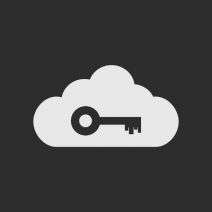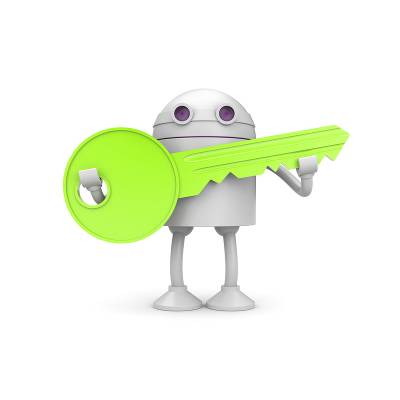Have any question?
Call (409) 861-4450
Call (409) 861-4450
 While they might seem like glorified toys for adults, drones are fantastic tools that can help people take some breathtaking photos and videos of their local scenery. Unfortunately, as is the case with most good technology, there are people out there who want to use them for nefarious purposes. This leads authorities to a tough question: how do you knock an illegal or dangerous drone out of the sky without harming those down below? The answer is simple: eagles.
While they might seem like glorified toys for adults, drones are fantastic tools that can help people take some breathtaking photos and videos of their local scenery. Unfortunately, as is the case with most good technology, there are people out there who want to use them for nefarious purposes. This leads authorities to a tough question: how do you knock an illegal or dangerous drone out of the sky without harming those down below? The answer is simple: eagles.
 Firewalls are one of the most common IT security measures on the market today, and for good reason. They act as the first line of defense against any incoming threats, and without them, your organization would have to deal with one data breach after another. Of course, that’s only if you’re taking advantage of a proper firewall; if not, you should seriously consider doing so as soon as possible.
Firewalls are one of the most common IT security measures on the market today, and for good reason. They act as the first line of defense against any incoming threats, and without them, your organization would have to deal with one data breach after another. Of course, that’s only if you’re taking advantage of a proper firewall; if not, you should seriously consider doing so as soon as possible.
 How much thought have you put into selecting your debit card PIN? If you’ve not put any thought into your PIN, then it’s likely the case that you’ve picked a number that’s easy to remember or even one that’s associated with something personal. Fact: Taking time to pick random and hard-to-remember numbers greatly improves PIN security.
How much thought have you put into selecting your debit card PIN? If you’ve not put any thought into your PIN, then it’s likely the case that you’ve picked a number that’s easy to remember or even one that’s associated with something personal. Fact: Taking time to pick random and hard-to-remember numbers greatly improves PIN security.
 Normally in cybersecurity, we hear about hacking attacks and immediately sympathize with the victim. It’s usually an individual or a business that suffers the most; yet, a recent trend is showing that hackers are lashing out at one another in response to certain threats. In response to a hack from the cyberespionage group Naikon, another group, Hellsing, retaliated with their own attack.
Normally in cybersecurity, we hear about hacking attacks and immediately sympathize with the victim. It’s usually an individual or a business that suffers the most; yet, a recent trend is showing that hackers are lashing out at one another in response to certain threats. In response to a hack from the cyberespionage group Naikon, another group, Hellsing, retaliated with their own attack.
 So far, 2015 has been relatively calm compared to the hack-fest that was 2014. However, we’re only halfway through the year, and there’s still plenty of time for hackers to make short work of networks. Remember, all it takes is a single mistake to expose your business’s network to a host of different threats. Understanding what these threats are and how to handle them is of the utmost importance.
So far, 2015 has been relatively calm compared to the hack-fest that was 2014. However, we’re only halfway through the year, and there’s still plenty of time for hackers to make short work of networks. Remember, all it takes is a single mistake to expose your business’s network to a host of different threats. Understanding what these threats are and how to handle them is of the utmost importance.
 Since the dawn of the computing age, hackers have taken advantage of all sorts of tactics in order to crack systems and ruin lives. With the Internet of Things bringing connected devices from all over the place into the mix, there are more opportunities than ever to take advantage of unsuspecting users. In fact, even car computers are capable of being hacked.
Since the dawn of the computing age, hackers have taken advantage of all sorts of tactics in order to crack systems and ruin lives. With the Internet of Things bringing connected devices from all over the place into the mix, there are more opportunities than ever to take advantage of unsuspecting users. In fact, even car computers are capable of being hacked.
 We all know that Windows 10 is the hot new operating system released by Microsoft this past July, with slick new features and (gasp!) the Start menu. We’ve been writing a lot of articles about how great and functional the new operating system is. Keep in mind that Windows 10 is a great operating system, but you should also take note of these four shortcomings when considering whether you should immediately upgrade or not.
We all know that Windows 10 is the hot new operating system released by Microsoft this past July, with slick new features and (gasp!) the Start menu. We’ve been writing a lot of articles about how great and functional the new operating system is. Keep in mind that Windows 10 is a great operating system, but you should also take note of these four shortcomings when considering whether you should immediately upgrade or not.
 With so much nasty content just begging to get viewed on the Internet, it’s understandable why a content filter needs to be integrated into your company’s web viewing protocol. Still, it should be understood that your content filter isn’t going to keep all questionable content away from prying eyes. Therefore, the only way you can really know with certainty that your Internet users aren’t doing anything sketchy is to actively monitor their activity, and check for any suspicious websites.
With so much nasty content just begging to get viewed on the Internet, it’s understandable why a content filter needs to be integrated into your company’s web viewing protocol. Still, it should be understood that your content filter isn’t going to keep all questionable content away from prying eyes. Therefore, the only way you can really know with certainty that your Internet users aren’t doing anything sketchy is to actively monitor their activity, and check for any suspicious websites.
 Have you ever wondered what hackers do with all of the data they steal on a regular basis? Sure, they could go public with it like they did with the Ashley Madison and Sony hacks, or they could sell it and make some quick cash. Credentials like passwords, usernames, Social Security numbers, and more, can be sold for top dollar in illegal markets, but how much can your identity go for?
Have you ever wondered what hackers do with all of the data they steal on a regular basis? Sure, they could go public with it like they did with the Ashley Madison and Sony hacks, or they could sell it and make some quick cash. Credentials like passwords, usernames, Social Security numbers, and more, can be sold for top dollar in illegal markets, but how much can your identity go for?
 Businesses are embracing the cloud model as the accepted form of computing, but some are finding that they want more control over their data. When you use a public cloud, you’re relinquishing some control so that you don’t have to deal with network security and hosting. If you’re serious about protecting your data and maintaining the infrastructure yourself, there are several benefits of operating your own private cloud infrastructure.
Businesses are embracing the cloud model as the accepted form of computing, but some are finding that they want more control over their data. When you use a public cloud, you’re relinquishing some control so that you don’t have to deal with network security and hosting. If you’re serious about protecting your data and maintaining the infrastructure yourself, there are several benefits of operating your own private cloud infrastructure.
 It seems like we can’t go on the Internet without reading about some sort of data breach. Sometimes they’re caused by poor security measures, like lack of data encryption or two-factor authentication; other times, it’s because of lackluster password security. Despite the antiquity of the username and password, they’re staples in the modern office. Thus, it’s important that they’re as secure as possible at all times.
It seems like we can’t go on the Internet without reading about some sort of data breach. Sometimes they’re caused by poor security measures, like lack of data encryption or two-factor authentication; other times, it’s because of lackluster password security. Despite the antiquity of the username and password, they’re staples in the modern office. Thus, it’s important that they’re as secure as possible at all times.
 We always talk about protecting your computers and servers from outside threats, but what about protecting your smartphones? There isn’t much difference between a smartphone and a computer. They both function in very similar ways with access to a variety of apps, social media, and browsers. Your smartphone could hold much more valuable data than just contacts or text messages.
We always talk about protecting your computers and servers from outside threats, but what about protecting your smartphones? There isn’t much difference between a smartphone and a computer. They both function in very similar ways with access to a variety of apps, social media, and browsers. Your smartphone could hold much more valuable data than just contacts or text messages.
 Changing your password is a pain. After you’ve gone several months with the same one, it can be difficult to remember your new password. Despite this, it’s always recommended that you change your passwords often. Unfortunately, when you change all of your passwords often, it’s even easier to forget them. Instead of using a post-it note on your monitor, you should instead try using a password manager.
Changing your password is a pain. After you’ve gone several months with the same one, it can be difficult to remember your new password. Despite this, it’s always recommended that you change your passwords often. Unfortunately, when you change all of your passwords often, it’s even easier to forget them. Instead of using a post-it note on your monitor, you should instead try using a password manager.
 Humans are always trying to improve security protocols that can protect against increasingly advanced online threats. Unfortunately, the threats only grow stronger in response, and the war against malicious online activity rages on. Biometrics are security measures that are growing in popularity, but are expensive and difficult to integrate. Now, the US military is funding a campaign to make it more readily available to end users.
Humans are always trying to improve security protocols that can protect against increasingly advanced online threats. Unfortunately, the threats only grow stronger in response, and the war against malicious online activity rages on. Biometrics are security measures that are growing in popularity, but are expensive and difficult to integrate. Now, the US military is funding a campaign to make it more readily available to end users.
 The busy business owner keeps sensitive work-related information stored on their mobile device. If he lost the device, it could have disastrous results, especially if the device were to fall into the hands of an experienced hacker or competitor. Just in case, it’s a best practice to always lock your mobile devices. How do you choose the Android lock feature which is right for your unique needs?
The busy business owner keeps sensitive work-related information stored on their mobile device. If he lost the device, it could have disastrous results, especially if the device were to fall into the hands of an experienced hacker or competitor. Just in case, it’s a best practice to always lock your mobile devices. How do you choose the Android lock feature which is right for your unique needs?
 People dial 911 when they’re in some sort of trouble or in the event of an emergency. If not for the hotline, who knows how many lives could be lost daily. Sometimes, however, help doesn’t come, even when dispatchers have received the call and responded. This generally isn’t the fault of the dispatchers, but rather the criminals who have undermined the rescue efforts thanks to some unorthodox hacking.
People dial 911 when they’re in some sort of trouble or in the event of an emergency. If not for the hotline, who knows how many lives could be lost daily. Sometimes, however, help doesn’t come, even when dispatchers have received the call and responded. This generally isn’t the fault of the dispatchers, but rather the criminals who have undermined the rescue efforts thanks to some unorthodox hacking.
Get the Knowledge You Need to Make IT Decisions
Technology is constantly evolving, and keeping up can feel overwhelming. Whether you want to understand cybersecurity threats, explore automation, or learn how regulations like PCI DSS impact your business, we’ve made it easy to access clear, straightforward insights on key IT topics.
Learn more about what NetWorthy Systems can do for your business.
NetWorthy Systems
701 W. Division Ave Suite 100
Orange, Texas 77630